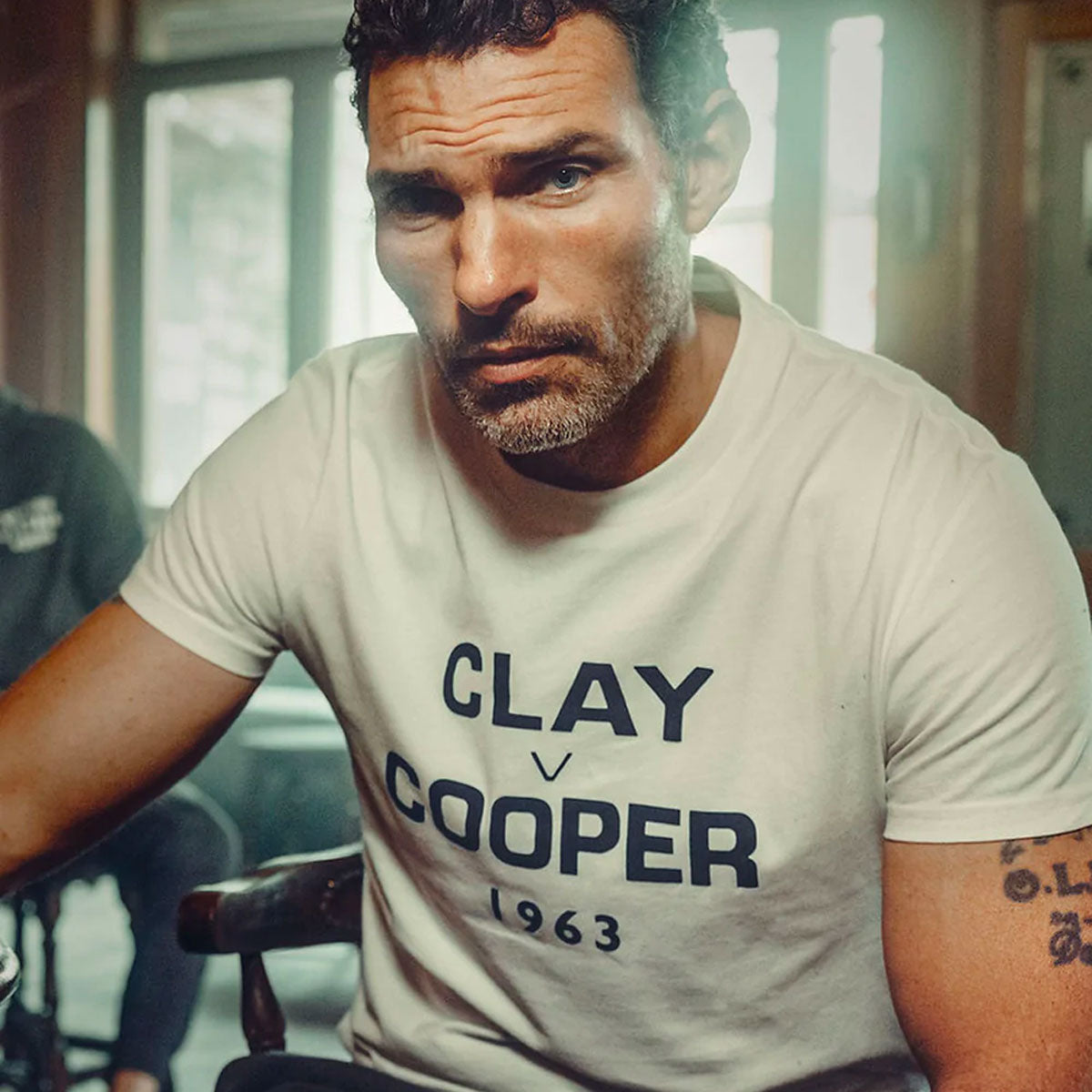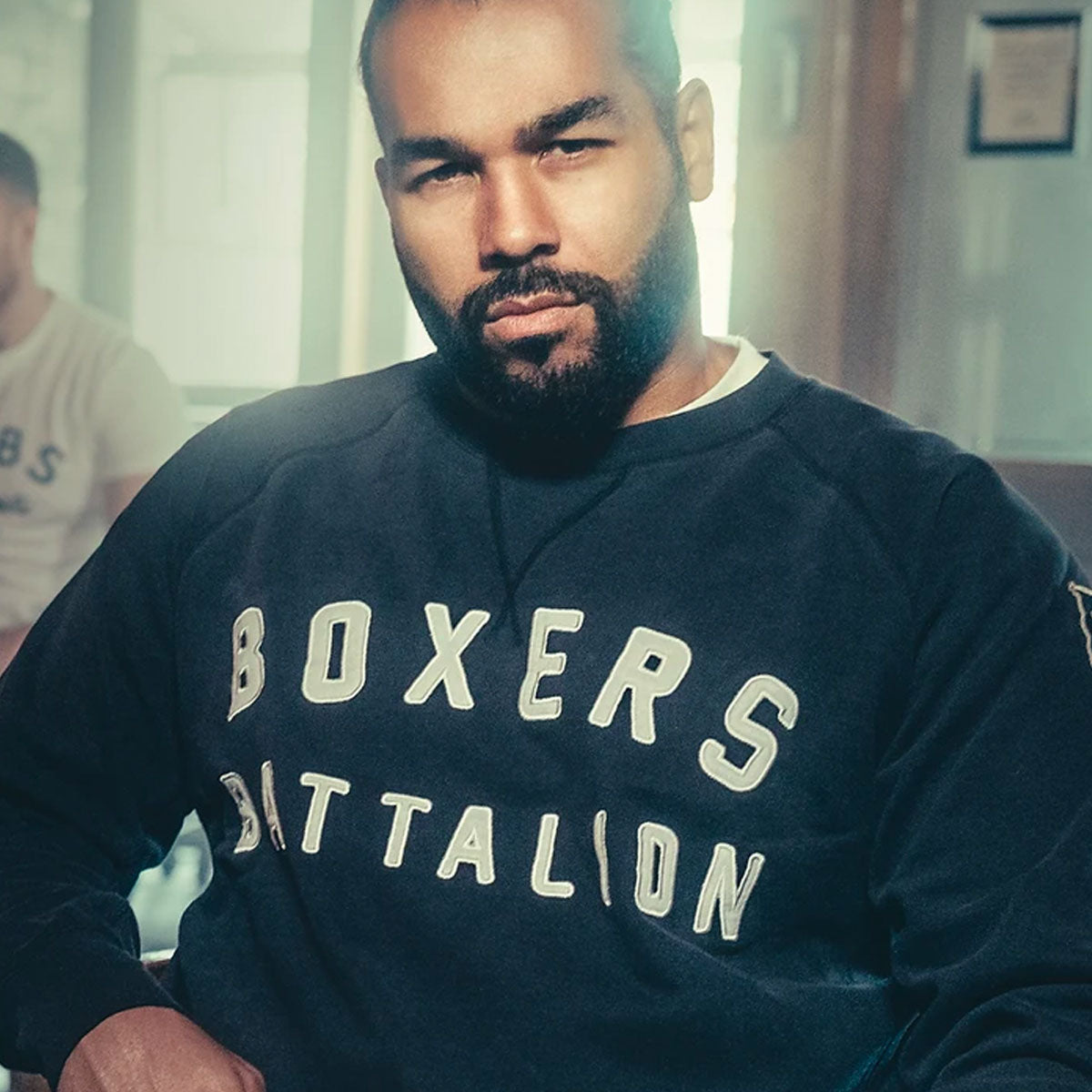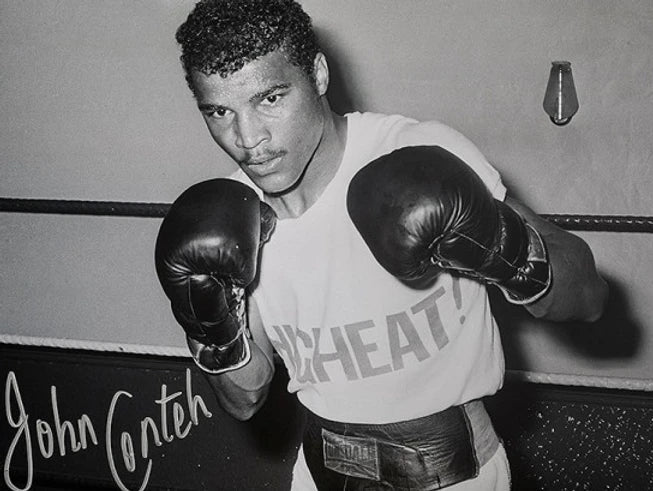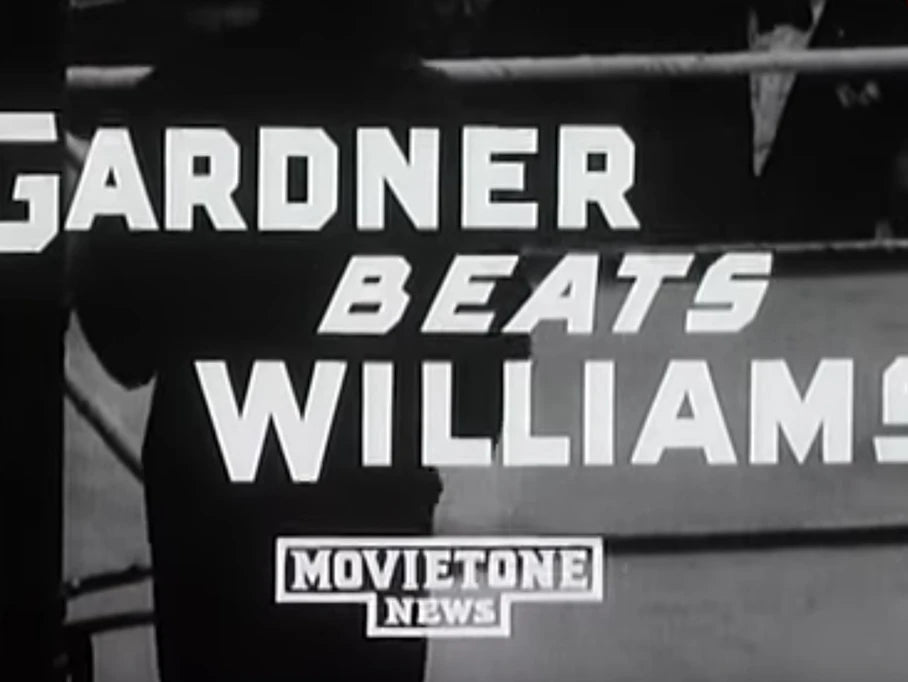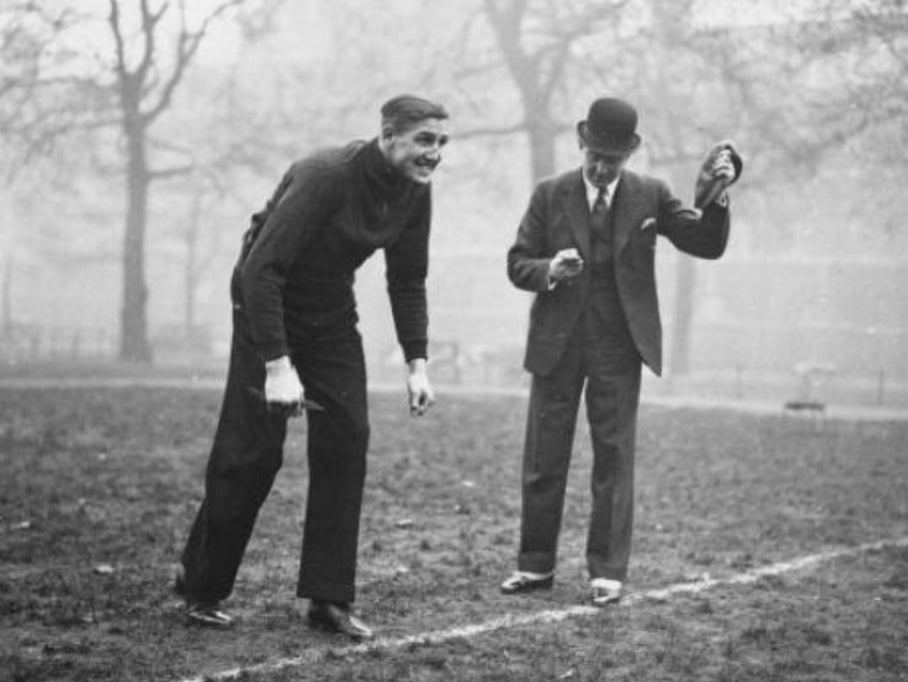Contributed by sportswriter Paul Zanon
Zero to hero and back down again. It’s a phrase you’ll often hear, but few have pulled off the cycle repeatedly as well as John Anthony Conteh, MBE.
The kid from Kirkby was one of the most iconic handsome boxers from the 1970s, enjoying all the trappings of superstar status – the leather jackets with fur trim, bespoke Saville Row suits and a Rolls Royce with the number plate, ‘JC 1’. 
Conteh evolved from humble beginnings. The Merseyside favourite was one of ten siblings, parented by an Irish mother and West African father, a merchant seaman by trade who landed on UK shores in 1942 and who first introduced the young Conteh to boxing at the age of 11.
Bitten by the fistic bug, Conteh turned to his local amateur boxing club in Kirkby and over the next eight years amassed an impressive record of 46 wins in 50 outings. Notable victories included the middleweight gold medal at the Commonwealth Games in 1970, the senior ABAs middleweight title the same year and in 1971, shortly before turning professional, he moved up two weight divisions and won the light heavyweight ABA title.
The twenty year old Conteh would have been a sure starter for the 1972 Olympic Games in Munich, but the lure of a hefty financial offer to turn professional put him on another course. On 18 October 1971, he made his debut at the National Sporting Club, Piccadilly, against Algerian born Frenchman, Okacha Boubekeur, stopping him in the opening session.
Despite leaving a legacy in light heavyweight history, Conteh’s first 18 bouts were actually at heavyweight, albeit, he was only ever a few pounds over the 175lbs limit, while many of his opponents weighed north of 200lbs.

In the absence of the cruiserweight division, Conteh fought the bigger men to gain publicity, which also included two contests on ‘The Greatest’s’ undercards. Muhammad Ali would often joke with Conteh saying, ‘Get out of my division!’, but it was the prolific heavyweight who also suggested that Britain’s boxing darling pursue a title shot in a lower division.
Conteh’s official debut at light heavyweight began on 13 March 1973, against the defending European champion, Rudiger Schmidtke. Despite the German stopping fellow Brit, Chris Finnegan four fights previously, Conteh was too much for the Frankfurt resident, stopping him in the twelfth session to become the new European leader at 175lbs.
Finnegan on the other hand fought on the undercard, beating Roy John to become British and Commonwealth light heavyweight champion and in doing so, put both himself and Conteh on a collision course for a winner takes all contest a mere nine weeks later on 22 May 1973. Despite a gutsy performance from Londoner Finnegan, Conteh did enough to take the contest on points over the full 15 round distance. 


In his next six fights, Conteh defended his three straps, including a rematch with Finnegan, the 1968 Mexico City gold medallist, but this time with an earlier conclusion via sixth round TKO. The smooth Merseyside fighter had not only gained the love of the boxing media, but was now being featured on the front cover of a number of publications, including the Wings album, ‘Band on The Run.’ Front man, Paul McCartney, a big boxing fan and fellow Liverpudlian, would often be seen cheering Conteh from ringside, and the two soon struck up a friendship. When the opportunity arose to put his fellow countryman on the album cover alongside the likes Michael Parkinson, Christopher Lee and James Coburn, McCartney embraced it with gusto.
After the Finnegan rematch, Conteh took on Argentine tough man, Jorge Ahumada for the vacant WBC light heavyweight world title at the Empire Pool, Wembley on 1 October 1974. Only four months prior, Ahumada had ground out a split decision draw against the legendary Bob Foster for the WBC and WBA straps. Without a doubt, this was Conteh’s stiffest test to date. However, despite the step up in opposition, Conteh prepared hard for the rugged come forward New York based Argentinian, beating his man by a wide points victory, and in doing so, being crowned light heavyweight world champion.
Conteh vs. Ahumada
Happy to go where the money and opportunities lay, Conteh became a road warrior for his next six fights, travelling as far afield as the USA, Denmark and Serbia.
First defence of world light-heavyweight title against American Lonnie BennettHowever, after his third successful world title defence against Michigan fighter, Len Hutchins, Conteh was stripped of his belt by the WBC after refusing to defend it against another Argentinian, Miguel Angel Cuello, in Monte Carlo.
Conteh, now based in north London had slipped into a life of excessive drinking and partying. Despite a promise to win back the title, he was never able to fulfil it. On 17 June 1978 at Red Star Stadium, Belgrade in front of 40,000 spectators, he took on 1972 light heavyweight Olympic gold medallist, Mate Parlov for his old title. At the time, the Croatian boasted a record of 21-1-1, with his loss and draw both coming at the hands of Matthew Saad Muhammad, a fighter Conteh would lock horns with a year later. After 15 hard fought rounds, Parlov got the nod in a split decision verdict.
After clocking up two further wins and a draw, Conteh took on the latest holder of his old WBC strap on 18 August 1979, the doggedly determined Saad Muhammad. The contest, which took place at the Resorts International, Atlantic City, had a controversial ending. Despite Muhammad clinching a points decision, it was later discovered that the Philadelphia fighter had used an illegal substance to stem the flow of blood on a cut he had sustained above his eye.
Seven months later, on 29 March 1980, the two met again in Atlantic City, but this time Muhammad made a statement, stopping Conteh in the fourth session. Fuelled with anger and alcohol, the Liverpudlian made the headlines for the wrong reasons this time, by wrecking his hotel room. 
By then an alcoholic, Conteh sought treatment in the early 1980’s and has remained sober since. Almost 40 years after retiring from professional boxing with a record of 34-4-1, in 2017 the former British, Commonwealth, European and world champion had one more worthy recognition bestowed upon him, receiving an MBE from the Queen for services to boxing.
Now a very proud grandfather, Conteh still lives in north London and spends a great deal of time helping a number of charities.
As of 30th May 2025 we have teamed up with John to bring you an official BVB John Conteh t-shirt.

Available here
Paul Zanon, has had 11 books published, with almost all of them reaching the No1 Bestselling spot in their respective categories on Amazon. He has co-hosted boxing shows on Talk Sport, been a pundit on London Live, Boxnation and has contributed to a number of boxing publications, including, Boxing Monthly, The Ring, Daily Sport, Boxing News, Boxing Social, amongst other publications.

